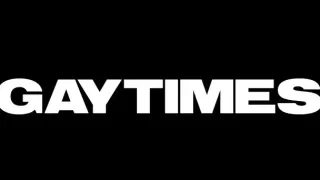
Jul 28
Mom of Queer Air India Crash Victim Heartbroken After Wrong Body Returned
READ TIME: 2 MIN.
A British mother’s grief over the loss of her son—an openly gay man beloved by his family and community—has been compounded by a shocking mistake: after his death in the July Air India crash, authorities returned the wrong body for burial, a fact only revealed days later by a DNA test. The heartbroken family, who had been preparing to say their final goodbyes, now faces renewed trauma as they seek answers and justice from the entities responsible for the mix-up .
The victim’s family, who had traveled to India to recover his remains after confirmation of his death in the recent Air India crash, was initially provided a sealed coffin and accompanying documentation indicating that it contained their loved one. Trusting the assurances of authorities, the family began funeral preparations in the United Kingdom. It was only after a routine DNA check—required as a final verification step—that the devastating truth emerged: the body inside the casket was not their son’s. The error was described as “appalling” by close relatives, who have called for a thorough investigation and accountability for the distress caused .
The victim was a well-known member of the British LGBTQ+ community, and his death in the crash had already prompted an outpouring of grief and support from friends and advocacy groups. The subsequent mishandling of his remains has intensified calls within the community for more sensitive, respectful treatment of LGBTQ+ families, who often face additional barriers when navigating international tragedy and bureaucratic processes .
Advocates stress the importance of honoring chosen family structures and ensuring that next-of-kin rights are recognized and protected, especially across international borders where legal recognition of LGBTQ+ relationships may vary. The family’s ordeal has highlighted the need for reforms in international disaster response and support systems, particularly to meet the needs of marginalized communities .
Air India, the airline involved in the crash, has released a statement expressing sympathy for the family’s loss and pledging full cooperation with authorities in investigating the incident. Officials have acknowledged the error and stated that steps are being taken to retrieve the correct remains and ensure that similar mistakes do not occur in the future .
The United Kingdom’s Foreign Office has also confirmed that it is providing consular support to the family and is in contact with Indian authorities to facilitate a resolution. Legal experts anticipate that the family may pursue legal action for the emotional distress and mishandling of their loved one’s remains, a process that could have far-reaching implications for international aviation and disaster victim identification protocols .
LGBTQ+ rights organizations and victim support groups have called for comprehensive reforms to ensure that families, regardless of sexual orientation or family structure, receive clear communication, proper identification, and compassionate support during such tragedies. The case has renewed conversations about the importance of international standards for disaster victim identification and the need for culturally competent, affirming care for all affected families .
The tragic sequence of events serves as a reminder of the unique vulnerabilities faced by LGBTQ+ individuals and their families in times of crisis, and underscores the ongoing need for advocacy, reform, and solidarity within and beyond the LGBTQ+ community.






